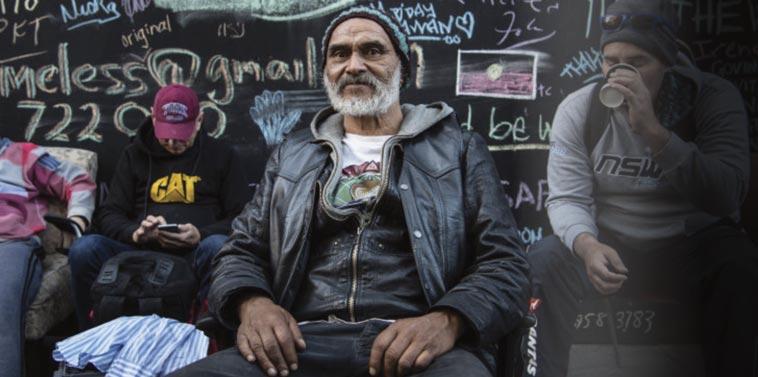HEAR THEIR VOICES A Mission Australia survey reveals the unique experiences and challenges faced by young Aboriginal and Torres Strait Islander people. Dominic Brookes reports. ndigenous young people are custodians of one of the oldest living cultures in the world and future leaders of their families, communities and Country. They are strongly connected to family, community and culture, are engaged in education and have high levels of confidence in their ability to achieve their goals. However, Aboriginal and Torres Strait Islander (ATSI) people face unique challenges due to Australia’s history of colonisation and its aftermath, including intergenerational trauma, racism, social exclusion and disconnection from culture and identity. These have a destructive impact on the social and emotional wellbeing and resilience of young people and ultimately can manifest in higher rates of psychological distress, self-harm and mortality. As a report from Mission Australia shows, young ATSI people face other difficulties such as unacceptably high levels of bullying linked to racial discrimination, as well as poor mental health, homelessness and insecure housing. Far too many young ATSI people experience distress, feel
I
negative about their future and are facing barriers to achieving their aspirations. They also experience a range of personal concerns in much higher proportions than non-Indigenous young people. For example, respondents to Mission Australia’s annual Youth Survey recorded substantially higher levels of concern about domestic/family violence (16.9 percent compared with 8.6 percent), drugs (14.5 percent compared with 7.0 percent), alcohol (11.7 percent compared with 4.9 percent) and suicide (20.5 percent compared with 13.9 percent). “While there are many positive experiences and hopes voiced by young Aboriginal and Torres Strait Islander people in our report, the concerns expressed really drive home that we must do more to improve the wellbeing and properly support young Aboriginal and Torres Strait Islander people in need, so they can thrive,” said Mission Australia CEO, James Toomey. Regarding wellbeing, the report found that while over half (51.4 percent) of ATSI respondents felt happy/very happy overall with their lives (compared with 61.4 percent of nonIndigenous young people), and more than half (52.1 percent) of ATSI
12 | Inner Sydney Voice | Summer 2021-2022 | innersydneyvoice.org.au
respondents felt very positive or positive about the future (compared with 58.7 percent of non-Indigenous respondents), more than three in ten (31.7 percent) ATSI respondents indicated some form of distress (compared with 26.7 percent of nonIndigenous respondents). Racial discrimination continues to be a source of poor mental health for Indigenous young people. Racial discrimination against young ATSI people in Australia is a complex, intersectional, intergenerational phenomenon that has been supported by a lengthy history of racist policies and practices. Such policies and practices have resulted in social marginalisation, poverty, lack of fair access to education, employment, healthcare, human rights, housing and food security, and historic and intergenerational trauma for ATSI children and young people. As the report’s authors note: “The experience of racial discrimination is a major life stressor, which is found to have significant mental and physical effects, including intergenerational family impacts.” Close to three in ten (29.9 percent) ATSI respondents reported that they have been bullied in the past year



















